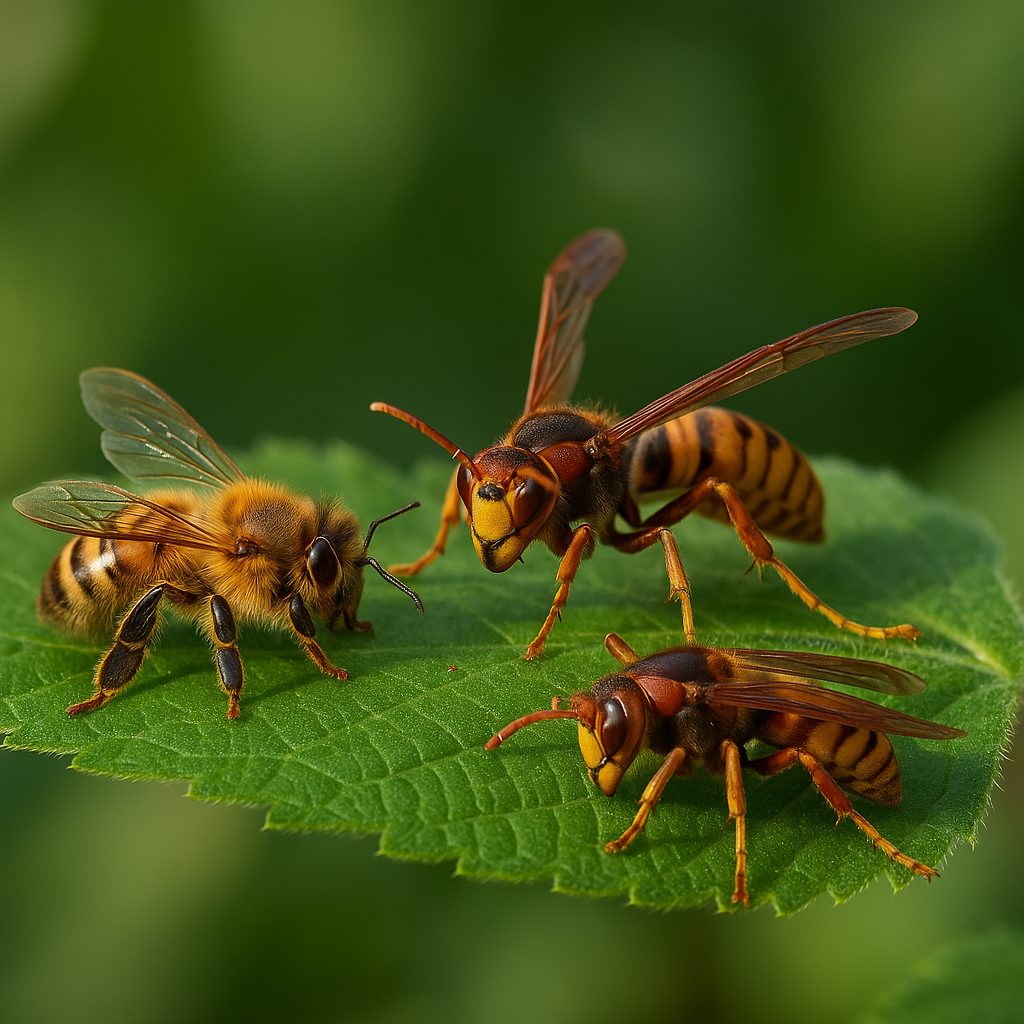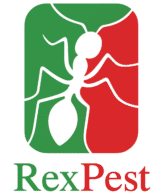Wasps, Hornets & Bees – Stingers with a Reputation
Wasps, Hornets & Bees (Order: Hymenoptera) – What’s Buzzing Around Your Home?
Know the Threat: Florida’s Most Feared Flyers
Not all stinging insects are created equal. Some pollinate flowers and play vital roles in our ecosystem, while others can be aggressive, territorial, and even dangerous — especially around your home, porch, eaves, and play areas.
Why They’re a Concern:
– Wasps and hornets can sting multiple times and defend their nests aggressively.
– Allergic reactions can be severe — even fatal in rare cases.
– Nests are often hidden in attics, soffits, sheds, or underground.
– Carpenter bees drill into wood to lay eggs, weakening structures.
RexPest’s Safe & Strategic Approach:
– Careful inspection for nests in rooflines, eaves, trees, mailboxes, and ground burrows.
– Identification of species to determine appropriate action — preservation vs. removal.
– Use of wasp-free foams, dusts, and barrier sprays.
– Protective removal of nests with safety equipment and exclusion methods.
Real-World Encounters in Florida:
1. A Brooksville homeowner found a wasp nest inside their grill cover — one sting led to a hospital visit. RexPest safely removed the nest and treated the patio area.
2. In Hudson, we found a basketball-sized bald-faced hornet nest 20 feet up in a pine tree near a child’s treehouse. Treatment had to be timed to avoid swarm attacks.
3. A Spring Hill family was hearing buzzing in their walls — a honeybee swarm had taken up residence. We worked with a licensed bee removal partner to relocate them humanely.
Fun Facts & Trivia:
– Hornets are actually a type of wasp — the bald-faced hornet is common in Florida.
– Paper wasps build umbrella-shaped nests that hang under awnings and decks.
– Honeybees can remember human faces — and are essential pollinators we try to preserve.
– Yellowjackets can build underground nests with thousands of insects.
Homeowner Tips for Prevention:
– Inspect eaves, fences, grills, and soffits regularly.
– Seal garbage bins tightly — sweet smells attract stingers.
– Keep bushes trimmed away from walls and porches.
– Avoid perfumes or bright clothing when mowing or gardening in summer.
Stinging Insect Challenges:
– DIY sprays may provoke aggressive behavior or leave behind pheromones.
– Some wasp species rebuild quickly unless nests are completely removed.
– Bees may require humane relocation (not extermination) — best handled by pros.
Why RexPest?
We combine pest safety with environmental awareness. When removal is necessary, we act fast and professionally. When relocation is possible, we coordinate with local bee rescue specialists. Either way, you’re protected.
Concerned About Wasps, Hornets, or Bees? Let RexPest Handle the Sting Safely and Responsibly.
Contact Rexpest for wasp removal.

Stinging Insects Don’t Just Hover — They Threaten.
Wasps, hornets, and even certain types of bees can become aggressive when nesting near homes or entry points. Their stings are painful — and dangerous for allergic individuals. RexPest offers safe, expert removal of stinging insect nests from structures, trees, attics, and eaves using eco-conscious, effective methods.
